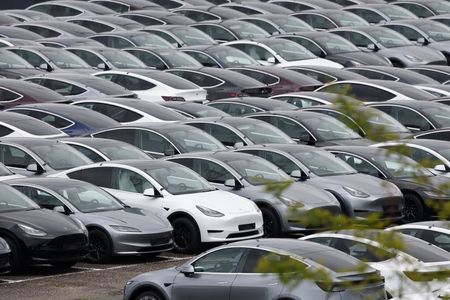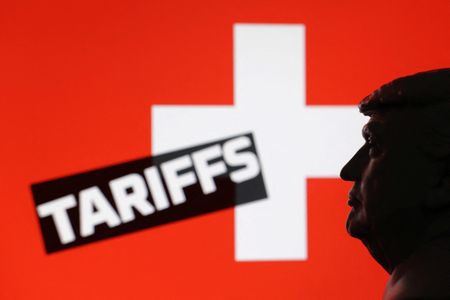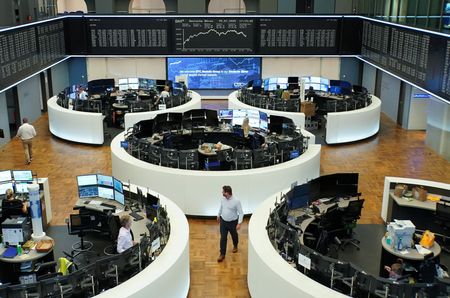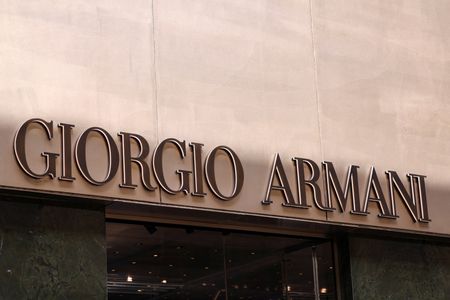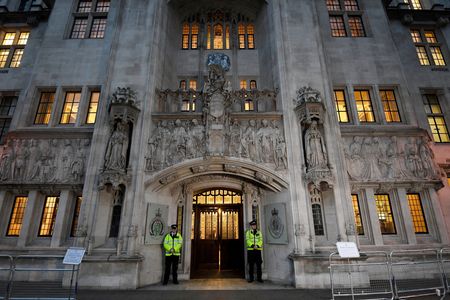LONDON (Reuters) – Sunday’s German election may result in a conservative-led coalition government that faces pressure for much-needed change to revive the stagnant economy – and moves to block reform by populist parties if they do well.
Europe’s largest economy could face months of uncertainty. Polls show the conservative CDU/CSU bloc led by Friedrich Merz is tipped as the winner but will need a partner – or possibly two – to govern.
Whether those in power can reform the country’s self-imposed debt brake to allow more spending that lifts economic growth is in focus.
Here are five key questions for financial markets.
1/ What will investors be looking out for first?
First, how quickly a government could possibly be formed and, second, whether there is a two-thirds majority of parties entering parliament that support fiscal reform.
“If there are long (coalition) discussions or three parties involved, that would complicate things,” said Simon Keller, equity research analyst at Hauck Aufhäuser Investment Banking (HAIB).
“It would be easiest if both the CDU/CSU and (centre-left Social Democrats) SPD have enough votes to go into a coalition.”
Should a one-third blocking minority of populist parties, including the right-wing AfD and left-wing BSW, enter parliament, that could scupper hopes for large-scale fiscal reform, even if they are not part of the administration, which would unsettle markets.
2/ Will the election bring debt brake reform?
Markets are unconvinced that a radical reform of the “debt brake”, which tightly limits spending, will happen, although a modest loosening of fiscal policy is expected.
Analysts say the constitutional debt brake has prevented governments from making vital investments, for instance in infrastructure, to overhaul an economy that shrank for a second straight year in 2024.
PGIM Fixed Income chief European economist Katharine Neiss said a slight tweak that allows a little more discretion on spending could be expected.
“But that said, we can have a high conviction that we will see more fiscal spending and that’s obviously good news at the margin,” Neiss added.
3/ Where does that leave the euro and bonds?
The euro is expected to benefit from any increase in government spending that boosts the economic outlook.
Trading near $1.0460, the euro has been whipped around by fears of U.S. tariffs and hopes for a Ukraine-Russia ceasefire.
“A grand coalition (CDU/CSU and SPD), alongside a two-thirds majority needed for the debt-brake reforms, would likely be euro-positive,” Morgan Stanley said.
A rise in fiscal spending meanwhile could increase the supply of German government bonds, thereby lifting yields.
Bond yields across Europe have also risen in anticipation of higher defence spending.
Citi added that peripheral bond markets such as Italy could also draw support if a CDU-led mainstream majority coalition emerges, as any steps to boost Germany’s economy are also viewed positively for the region as a whole.
4/ What about equities?
The election could boost German economy-exposed stocks if corporate tax cuts and stronger growth follow.
Note, the large-cap, more global DAX index is near record highs, while mid- and small-caps have lagged as companies more exposed to weak domestic growth underperform.
“Contrary to most recent elections in Europe, the German one is more a positive tail risk than a negative one,” said Barclays’ head of European equity strategy Emmanuel Cau.
Investors may be front-running the results. Weekly inflows into Europe excluding UK equities hit their highest in two years in the week to Wednesday, Barclays said, citing EPFR data.
5/ Will more be spent on defence?
That’s looking likely as Washington pressures Europe to ramp up defence spending ahead of U.S./Russia talks on a possible Ukraine peace deal.
German arms maker Rheinmetall on Monday surged as much as 11% to record highs.
The CDU/CSU believes NATO’s defence spending target of 2% of GDP is a minimum. Likely coalition partners – the SPD, Greens and/or FDP – favour at least meeting NATO spending targets.
“The debt brake will be reworked, not for a massive stimulus package, but to accomplish higher defence spending, for example,” HAIB’s Keller said.
Signs that Brussels could make it easier for countries to increase defence budgets outside of usual deficit limits have also lifted defence stocks RENK Group and Hensoldt. (This story has been corrected to change the dateline to Feb. 18, not Feb. 19)
(Reporting by Samuel Indyk in London, Greta Rosen Fondahn in Gdansk and Stefano Rebaudo in Milan; Editing by Dhara Ranasinghe and Hugh Lawson)



